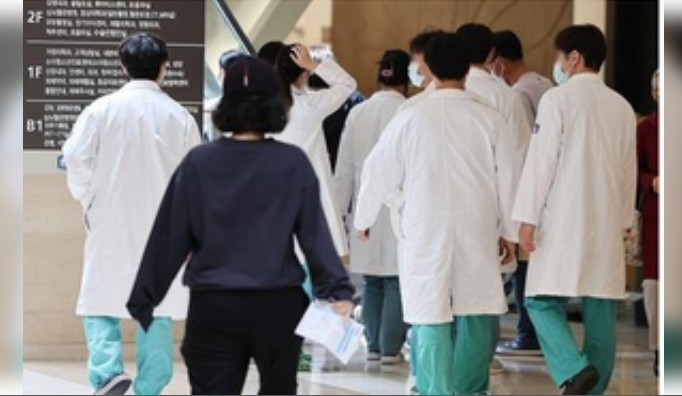Health
S. Korea doctors’ protest: More medical professors considering weekly breaks

Seoul, April 26
Professors from around 20 major medical schools in South Korea will decide on Friday whether to take a weekly day off while struggling to fill the void of trainee doctors who have walked off their jobs for more than two months, officials said.
The emergency committee for national medical professors will hold a general meeting online later in the day and discuss the potential suspension of all surgeries and treatment for outpatients once a week, according to its officials, Yonhap news agency reported.
"Professors have hit their limit both mentally and physically," said a committee official, adding: "We will review whether to take a day off on a regular basis, and details will be fixed in accordance with the situation of each hospital."
Despite looming closures, hospitals will likely continue the operations of their emergency rooms and intensive care units, he added.
The committee involves professors from around 20 medical schools, and those affiliated with some of the schools have already decided to have a weekly break starting next month.
Earlier, professors of the Seoul National University's medical school vowed to suspend their work on April 30, and they will decide on possible regular breaks later.
The professors serve as senior doctors at major hospitals.
The move came as more than 90 per cent of the country's 13,000 trainee doctors have walked away from their duties at general hospitals since February 20 in protest of the government's decision to increase the number of medical school seats by 2,000 starting next year from the current 3,058.
The government and the medical community have not yet found a breakthrough in their conflict.
The medical community cited heavy workloads and extreme fatigue as major reasons for the move, however, it is also seen as a way of adding pressure by the medical community on the government to seek a breakthrough as the plan on the medical school admission quota for next year is supposed to be finalised by end-April.
Adding to the woes, medical professors have submitted their resignations since March 25 in support of the collective action by junior doctors, which was supposed to take legal effect after one month.
The government launched a special presidential commission on medical reform Thursday for talks on the issue with the medical community, including doctors.
It also decided to allow universities to make their quotas ranging from 50 to 100 per cent of what the government assigned for next year.
But doctors have rejected the proposals, calling for the government to revisit the issue from scratch.
#



































